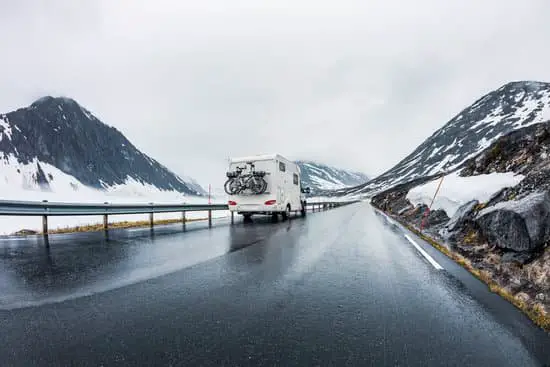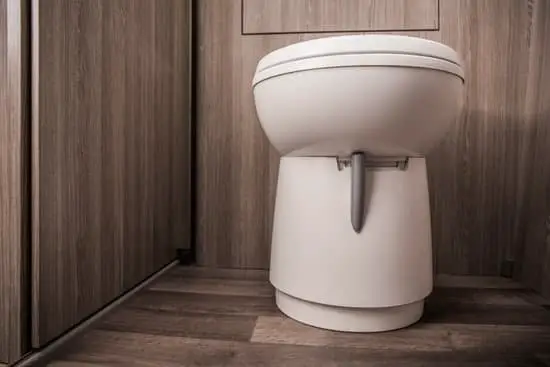Is RV antifreeze freeze-resistant? That’s the question that many people ask when trying to decide what type of antifreeze to use in their recreational vehicle. In this article, we would about the question does antifreeze gets slushy.
Does Rv Antifreeze Get Slushy? RV Antifreeze can become slushy, but at a much lower freezing point compared to water. Propylene glycol, which is used in RV antifreeze, does not freeze solid. It will freeze, but only to a slushy consistency.
We should also note that there are products with additives meant for use in winter conditions (salt and potassium), but they don’t always work well enough on their own or at all, depending on what type of engine you have. So I would recommend using a separate product during those times instead when possible; otherwise, mixing in such an additive may help your system handle some colder temperatures better by preventing the water from freezing.
Does RV Antifreeze Freeze?
Yes, but to a lesser degree, than regular water does, it will not usually freeze up the bursting point.
Is RV Antifreeze Good for Winter Use?
- An RV with an engine that uses liquid cooling should be used year-round because of its ability to withstand cold temperatures better without being infiltrated by ice or snow. But if you are using an engine that circulates exhaust gasses as a heat transfer medium, there may be some issues related to corrosion in colder weather.
- If you want your engine and water system to operate at peak performance, you need a product that will protect against freezing and melting.
- If you are using an engine that circulates exhaust gasses as a heat transfer medium, there may be some issues related to corrosion in colder weather. So your needs really depend on what type of system you have and where you live! If salt is added into the mix during the winter months, this can help prevent ice/snow from forming on the antifreeze.
- Yes, but to a lesser degree, than regular water does, it will not usually freeze up the bursting point.
Rv antifreeze can get slushy Is RV antifreeze able to freeze?
Antifreeze is not known to freeze at temperatures above 0°C. “burst point,” This is when a water pipe could burst. The water’s freezing point can be lower by using RV antifreeze. It will freeze solid if it is not gel-like.
Antifreeze freezes?
There are two options for RV antifreeze: minus 50 F or minus 100 F freeze burst protection. The minus 50 degrees F antifreeze has an ice point of +12°F. However, it can freeze at full strength at +12°F, but freezes at minus 50°F.
Do you get a strong antifreeze smell?
It is not recommended or designed for use as a seasonal cold storage protector. It can also cause water system contamination. This product can contaminate RV plumbing systems, resulting in bad taste or smell for the next year. Should not use it with quest water lines.
Is Rv Antifreeze prone to slushiness – Similar Questions
Antifreeze can keep water from freezing
Antifreeze reduces the freezing point by preventing ice crystals formation. Therefore, should mix antifreeze and water at a ratio of 60:40 to 50/50. This usually corresponds to antifreeze protection at temperatures of –25°C to –40°C.
How cold is too cold to be considered a cold-weather condition?
We mentioned that there is no set temperature at which RV water lines can freeze. However, you should be concerned if the temperature drops below 32°F or 0°C. There is a possibility that your pipes may freeze at this point.
What temperature can RV water lines freeze?
Temperatures must drop below freezing (32 F) for at least 24 hours to freeze RV pipes. This depends on several factors, such as an enclosed, heated, or insulation underbelly.
Is antifreeze lighter than water?
The melting point is -72
4 degrees F, a boiling temp of around 370
8 degrees F and specific gravitation of 1.
036 It is correct to say that antifreeze weighs slightly more than water.
They evaporate more slowly than water because they are heavier.
What is the antifreeze/water ratio?
Mixing 50/50 water with RV antifreeze can cause expansion. This is exactly what you want to avoid. I wouldn’t mix RV antifreeze and water to protect anything.
Does antifreeze make water heaters less efficient?
Although the antifreeze will not harm your tank, you should flush it out before starting it up next spring. This will allow you to flush the antifreeze out without affecting your existing winterize work on the rest.
How can I get rid of RV antifreeze?
It is easiest to flush out the antifreeze from the RV by running fresh water through it using the water pump. Then, turn on all the hot and cold faucets and let the water flow through the system.
How can RV get antifreeze taste?
After flushing your water system for a few minutes, it should smell clean and fresh. If your water has an unpleasant taste or there is still some antifreeze left, you can add baking powder to get rid of this. Sprinkle baking soda directly in each drain, or mix it with water and pour it down.
At what temperature does Pure antifreeze freeze
The name “antifreeze” Can be fooled into believing that the coolant will not freeze. However, in reality, pure antifreeze, ethylene glycol, or nitrous oxide will freeze at temperatures between minus 5 and minus 5.
What temperature can antifreeze freeze?
-36 degrees Fahrenheit
Antifreeze and coolant with a temperature of -36 Fahrenheit (or -38 Celsius) will begin to solidify, making it difficult for your engines to turn.
What to do when RV pipes freeze
How to Unfreeze Your Pipes
1) Heater. You can use a propane heater, space heater, or extension cord to heat your pipes.
2) Heat Tape
3) Heat Gun/Hair Dryer
4) Call a plumber.
- Winterize Your Home
- Improve Your Insulation
- Heated Water Hose
- Electric Tank Heater
Are hotels more expensive than staying in hotels?
With costs of $865 and $3,077, respectively, a small RV is the most cost-effective option for both trips. The traditional vacation comes in at $1433 and $4466. An RV is a better option than a traditional hotel vacation or car if you drive less. A small RV is the best option for extended travel.
How can I prevent my RV pipes from freezing
These are some tips to keep your water flowing during winter.
- Apply heat tape to pipes and hoses.
- Heat your internal plumbing.
- You can use the internal freshwater tank.
- Use a space heater.
- Add antifreeze
- Be careful with your tanks
Can pipes freeze at 29°C?
Your pipes freeze in the winter when it is outside temperatures are below 20 degrees Fahrenheit. It all depends on your geographic location. The pipes inside your home are more insulated in areas with lower temperatures than those in other regions.
Can RV antifreeze cause damage to a car?
Can theoretically use RV antifreeze in a car’s cooling system. It will not work as well as antifreeze specifically designed for automobiles. Additionally, RV antifreeze could cause damage to your radiator and heater core. 28 September 2020






